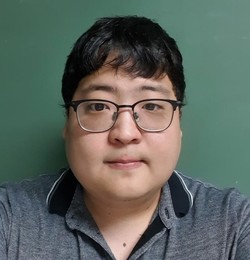In the ever-competitive world of pharmaceuticals, it seems that every few years, a new company emerges touting its latest "miracle cure."

This time, it's GemVax & KAEL, a Korean pharmaceutical company, that seems to have discovered the holy grail of medicine with their so-called wonder drug, GV-1001.
GV1001 is a peptide composed of 16 amino acids. It is derived from telomerase, a DNA-protein structure that prevents damage to genetic material at the ends of chromosomes. Telomerase prevents telomeres from being shortened by cell division. Telomeres shorten each time a cell divides, and their absence is fatal to the cell.
The first target indication was pancreatic cancer.
However, in June 2013, a phase 3 pancreatic cancer trial in the U.K. failed to show statistical significance in prolonging survival, and the company announced that the trial had failed.
In a surprising turn of events, the MFDS granted conditional approval for GV1001 as the 21st new locally-developed drug for treating pancreatic cancer on Sep. 15, 2014.
However, the company was unable to meet the condition of submitting the phase 3 clinical results report to the MFDS, and the drug agency revoked the conditional approval of GV-1001 under the brand name Riavax in May 2020.
Despite such a mishap, GemVax & KAEL continued to explore other indications for GV1001.
GemVax & KAEL's ongoing clinical trials with GV1001 include benign prostatic hyperplasia, Alzheimer's disease, geriatric diseases, chronic inflammation-related diseases, and immunotherapy.
A drug development expert at a major Korean pharmaceutical firm said the drug candidate seemed to be a pipe dream.
“It is not uncommon to target different indications with the same mechanism, but in the case of GV1001, the idea of developing the drug to treat widely different diseases seems nonsense,” he said on the condition of anonymity.
For the revoked pancreatic cancer indication, the company has yet to reapply for approval despite receiving its phase 3 clinical trial results in December 2020.
The company also failed to meet the primary outcome of a phase 3 study of GV1001 in benign prostatic hyperplasia (BPH) in July of this year.
According to the data, GV1001 failed to demonstrate superiority in the primary endpoint, the International Prostate Symptom Score (IPSS), over Organon's Proscar Tab., the control drug.
However, rather than focusing on the fact that the drug failed to achieve the primary endpoint, GemVax touted that GV1001 reported similar treatment efficacy versus the control drug, a better IPSS despite being not statistically significant, and confirmation of GV1001's signature safety profile.
A company official stressed that such factors make GV1001 commercially viable as a drug for BPH and that GemVax will plan a new clinical design for a global Phase 3 study with further analysis and research.
Regarding GV1001 in treating Alzheimer's disease, which had attracted the most attention in the market, the company has shown some promise as it completed its domestic phase 2 clinical trial.
The company is now planning to conduct a domestic phase 3 and global phase 2 trial in seven countries in the U.S. and Europe.
However, the process was also not smooth.
In the case of the domestic phase 3 clinical trial, it was initially rejected by the MFDS in April 2021 for lack of supplementary data on the number of patients, calculation basis, and co-primary efficacy endpoints.
The company was only able to receive approval in January 2022 after supplementing the data.
The local phase 3 trial clinical trial will be conducted by Samsung Pharmaceutical.
In May this year, GemVax signed a technology transfer agreement with Samsung Pharmaceutical for the right to develop and commercialize GV1001 as a treatment for Alzheimer's disease in Korea.
The deal was worth a total of 120 billion won, including an upfront payment of 12 billion won.
Most recently, on Wednesday, the company announced the results of a sub-analysis for its completed phase 2 clinical trial, saying that GV1001 showed effectiveness in treating language disorders and presented a new paradigm for treating Alzheimer's disease.
In response, Samsung Pharmaceutical announced that it plans to specialize in GV1001 as a treatment for improving language skills for Alzheimer's disease patients.
Despite the trial going as planned, there was a lot of talk in the industry about technology transfer to Samsung Pharmaceutical.
"It is not uncommon for domestic pharmaceutical and biotech companies to license-out its candidate to a subsidiary," an industry watcher told Korea Biomedical Review. "Of course, when transferring technology to a subsidiary, it is not free, and a certain amount of money is exchanged."
However, the official stressed that he has never seen such a large technology transfer deal between a parent company and a subsidiary.

